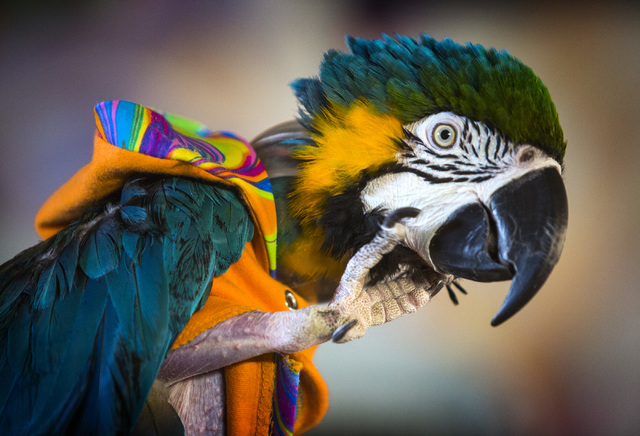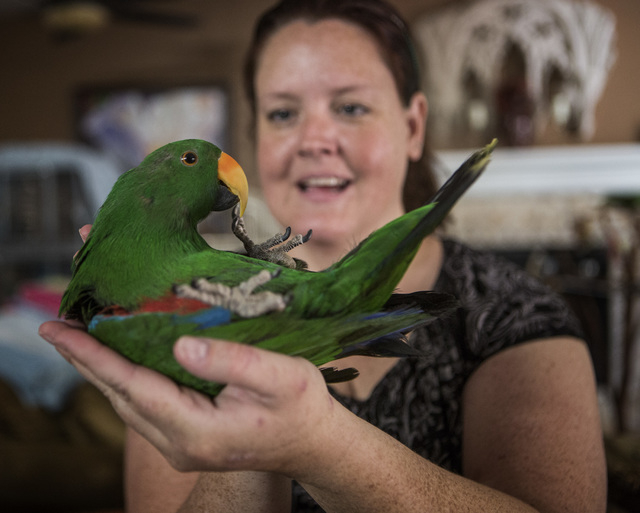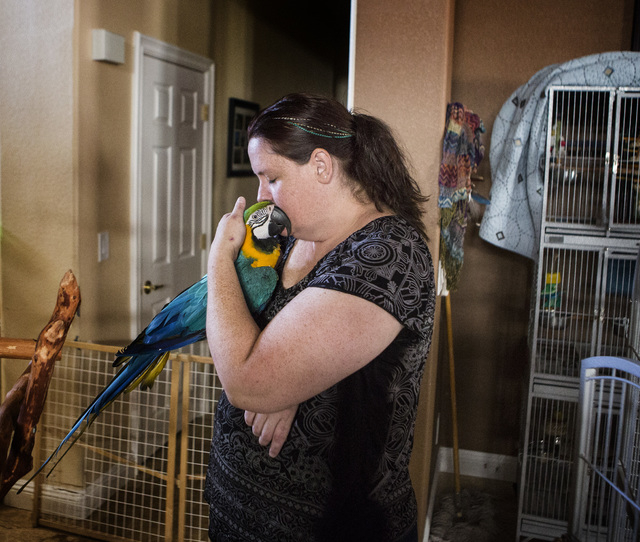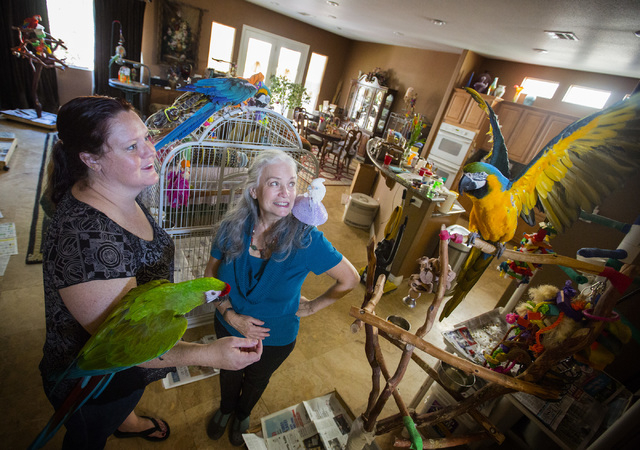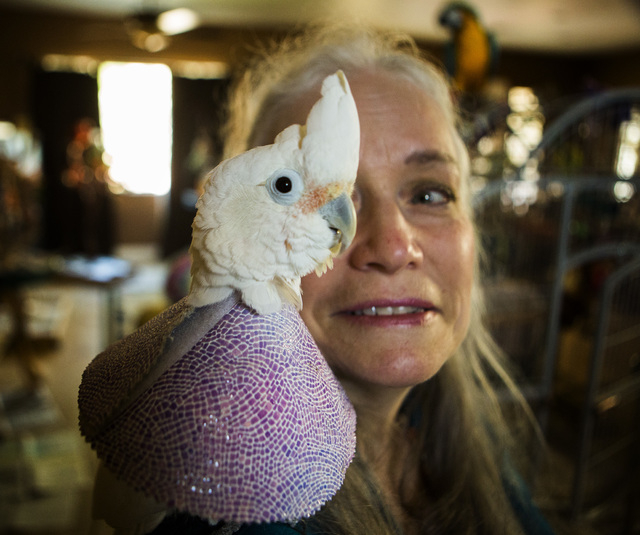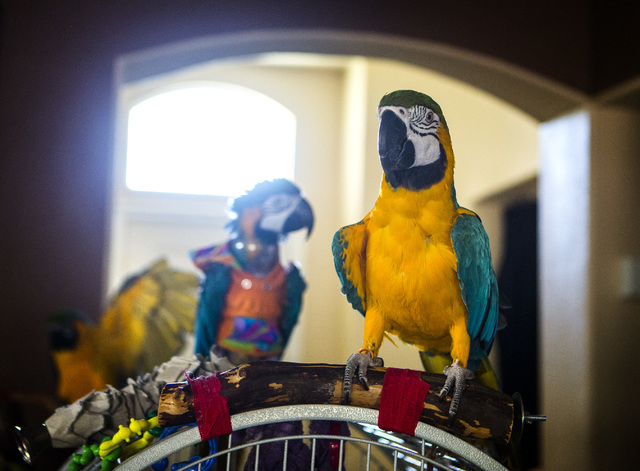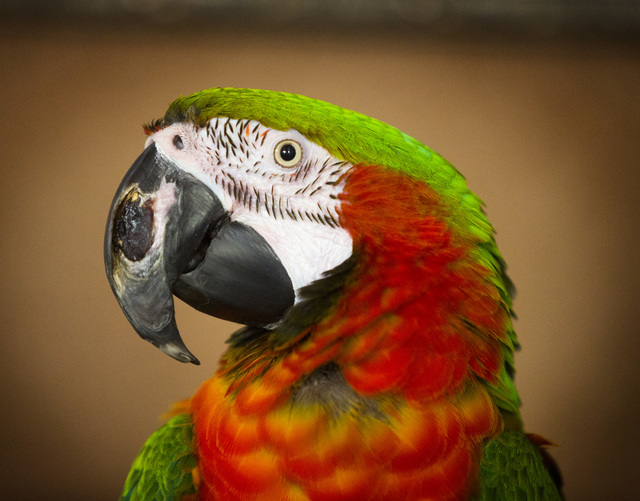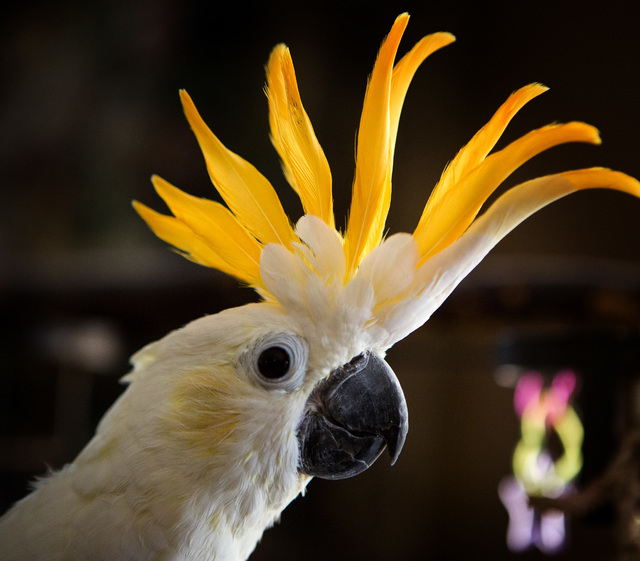Parrot rescue works to educate public about long-lived, intelligent birds
It usually starts with a baby bird. The owners are excited to spend time with their young parrot, and they spoil it with attention.
Then, reality sets in. The parrot grows up, and its owners can no longer spend as much time with it. After listening to the parrot yell out its frustrations, they look for someone to take it off their hands.
“That’s where we come in,” said Madeleine Franco, executive director of the Southern Nevada Parrot Education, Rescue & Rehoming Society. “These animals are very intelligent and interactive. They’re smart enough to notice when relationships change. People often make the mistake of giving them a great deal of attention, and the parrots continue to expect it.”
Members of a local bird club started the organization in 2007. The nonprofit takes in pet parrots only with a written consent from the owners.
Franco, who lives in the Summerlin area, said there are many reasons that people donate their parrots. It can include death of the owner, illness, loss of job or other major life changes.
“Parrots are like little 3-year-olds,” Franco said. “They need to be supervised and have things to keep them busy. Taking in a parrot can be a long-term obligation, as many of them have a lifespan similar to humans.”
The organization has taken in more than 500 birds since it started, according to Franco.
She said it averages receiving six birds a week. Because the group does not have a centralized brick-and-mortar location, it relies on fosters to care for the birds until they can find permanent homes.
“They’re one of the most endearing and intelligent creatures,” said rehoming director Skye Marsh. “Show them the right level of care and diet, and you can see their personalities blossom.”
Marsh, a Centennial Hills resident, has a bird in her care that has taken the title of room monitor. She said the parrot will say, “Bad bird,” or, “Hey, knock it off,” and, “Get in here,” when disciplining others.
“They don’t just mimic us; they know what words mean,” Marsh said.
Franco warns it could be problematic when people teach a parrot bad language because it limits their possibility of adoption.
Currently, the group has 40 parrots, including macaws, cockatoos, African grey and Amazon parrots, all in need of homes.
Adoptions fees range from $250 to $500, which cover the parrot’s cage, toys, treats, medical expenses and food. The fee is also used to cover expenses for the next bird that comes in.
For people who are not ready to adopt or simply want to help out, the nonprofit is looking for fosters.
In order to adopt or foster, people must become a member of the organization by completing an application and paying a fee of $50 for the first year and $30 for each subsequent year.
Members receive a newsletter on bird care, discounts to various stores and the ability to connect with parrot experts.
Like most prey animals, parrots are known to bite if they believe they are in danger.
“Whenever a bird bites, it’s our fault,” Franco said. “Biting is the last form of communication for a parrot. Sometimes parrots mistake fingers for food.”
She added that parrots need a steady diet, clean cages and fresh water.
A home visit is required before becoming a foster or adopting. The visit will allow volunteers to assess if the home is safe for the parrots and help match personalities together.
“When we take in a bird that’s starved for attention, and we bathe and groom him, clean his cage and give him new toys, he becomes a brand new creature,” Franco said. “It really makes a difference when you treat them with respect. They’re smart enough to know when they’re loved and cared for.”
For more information, visit snperrs.org.
Contact North View reporter Sandy Lopez at slopez@viewnews.com or 702-383-4686. Find her on Twitter: @JournalismSandy.



